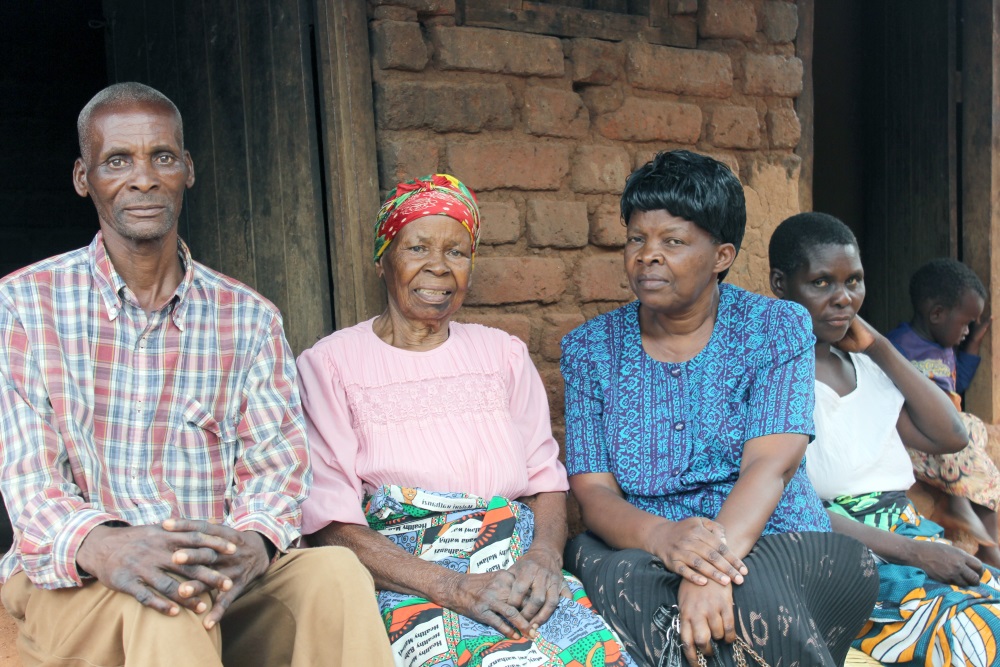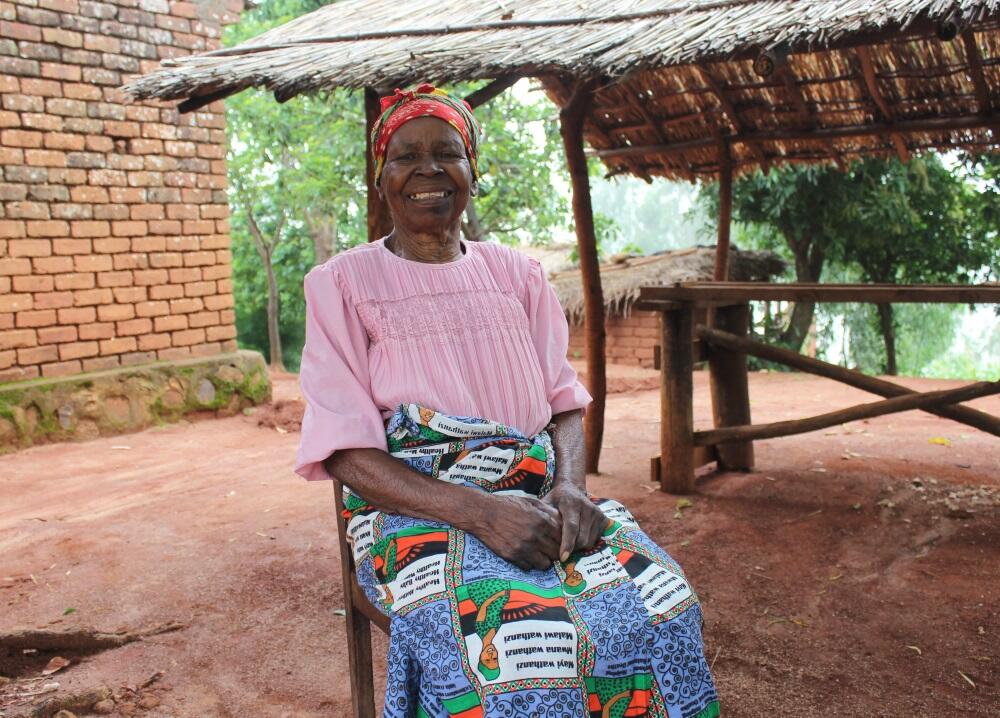Eighty six year-old Alice Sabuni has a lot to smile about. For 66 years she lived with a fistula after a difficult childbirth when just a teenager, but now she is healed.
Alice’s mother died when she was 14 years old and she married two years later. By the age of 17, she was pregnant with her first child. But after giving birth she developed a fistula, a condition she has lived with since 1949.
An obstetric fistula is a childbearing injury caused by obstructed labour without timely medical intervention, such as a Caesarean section. The prolonged labour and sustained pressure of the baby’s head on the mother’s pelvic bone, damages most of the soft tissues and creates a hole – or fistula – between the vagina and the bladder and/or rectum. The result is the leaking of urine and/or faeces. When this occurs, the woman has no control over it and suffers neglect and the violation of her human rights.
Fistula caused by obstructed labour
Alice remembers that when she went into labour, her family delayed her trip to hospital for almost two days. She managed to give birth at the mission hospital but she became incontinent as a result. She returned for treatment twice but her condition did not improve.
Alice thought that she would have to live with the fistula for the rest of her life. Her sisters accepted her condition and they helped keep her secret all through the years.
She is very strong. She looked after us and she has been doing various household tasks, including farming, throughout these years. - Alice's sister, Melia Wesele
Amazingly, despite her suffering she managed to give birth to another five children. None of them knew of her condition, and nor did any of her friends.
Her younger sister, Melia Wesele, who was born in 1936, said that Alice’s condition has haunted her for a long time. “She is very strong. She looked after us and she has been doing various household tasks, including farming, throughout these years.”
In some respects Alice was lucky – unlike most women who develop a fistula during an obstructed labour, her husband stayed with her and together, they had more children. “I think this man loved me a lot because I do not think most men would stay with a woman who had this condition,” she said.
Her husband left her

However, 15 years ago her husband, James Sabuni, 88, left her and married another woman. She still believes there could be a reason other than her fistula to explain why he left her. “He sometimes comes here, we chat and laugh at some stories,” said Alice.
Today she lives with her son and daughter-in-law at Masinja Village in Traditional Authority Somba, Blantyre district, less than three kilometres from her home village. It is about 60 kilometres from the city of Blantyre and about 130km from Mulanje district hospital, where her fistula was repaired last year.
According to a relative, there were times when people thought Alice had been bewitched, due to her condition. It is common in communities such as hers to believe that such conditions are a result of witchcraft, an observation that Alice also agreed with. She said she had tried a few traditional medicines from traditional healers, but none of them helped.
Support from UNFPA
Then help came in the form of the first ever fistula camp in her district, organized in November 2015 by UNFPA and Mulanje District Health Office.
I am healed, save for a few wounds that are taking time to heal. I would not have suffered much if I had received this treatment earlier. Regardless, I am a happy person now. - Alice Sabuni
Alice heard about the camp via a radio announcement and was taken to the hospital by her niece, Mulonya, despite the reluctance of some of their family members.
A total of 21 women received treatment during the two-week-long camp and four more were referred for specialized operations due to the seriousness of their condition.
Alice made tremendous progress, and she is recovering well. “I am healed, save for a few wounds that are taking time to heal,” she said, then asked: “Where were you all these 66 years? I would not have suffered much if I had received this treatment earlier. Regardless, I am a happy person now.”
Extent of fistula in Malawi
Alice is just one of the many women who have suffered from a fistula but until last year, never had an opportunity to have it repaired. In Malawi, some studies have revealed a prevalence of obstetric fistula of 1.6 per 1000 women, with an estimated 20,000 women living with the condition.
Obstetric fistula is preventable but remains a major public health problem in the country. Its persistence is a sign that health systems are failing to meet the emergency obstetric care needs of pregnant women. Broader access to quality Caesarean sections would help enormously in the prevention of fistula.
Since 2007, UNFPA has supported the Government of Malawi in providing medical supplies, training of clinicians and provision of funding for fistula prevention, treatment and social reintegration programmes. Every year, UNFPA organizes fistula camps in selected districts of Malawi and women from the surrounding districts receive treatment.
Freedom from Fistula and Amref Health Africa have supported the Government of Malawi since 2011 with fistula treatment in Lilongwe and Mangochi, respectively. Most of their clients are mobilized through media campaigns and community awareness through traditional leaders and fistula survivors, who share their news with other potential patients.
By Henry Chimbali


